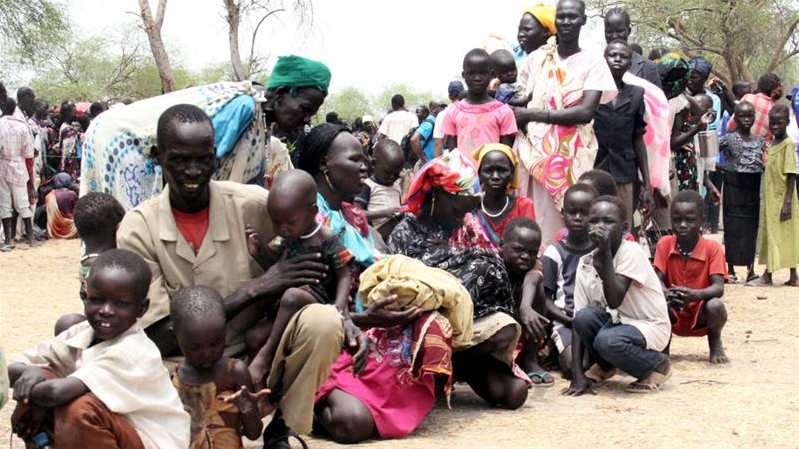
South Sudan local church officials confirmed a recently released United Nations report describing the horrors of Africa's civil war, including mass rapes as well as children and disabled people being burned alive, hanged or cut to pieces. The U.N. report is definitely reliable, stated the unnamed church sources to news agencies. The violent conflict produced shocking news stories of people being forced to eat human flesh and drink blood, the African Union revealed in October 2015.
U.N. officials said their report contains "harrowing accounts of pro-opposition civilians killed" by also being suffocated in containers or shot, reports Christian Post World.
The country's civil war erupted in December 2013 following a conflict between President Salva Kiir, an ethnic Dinka, and his rival and former Vice President Riek Machar, a Nuer.
Rev. Franklin Graham, who leads humanitarian organization Samaritan's Purse, began warning last year that the continued fighting in Nuba and Blue Nile is destabilizing all of the northeast Africa and devastating South Sudan.
"The whole region is on fire with bloodshed. These people are suffering beyond belief, and on top of that they are being bombed by their own government," stated Graham.
The systematic use of mass rape to humiliate opponents is terribly real and widespread, say local sources.
Assistant Secretary-General for Human Rights Ivan Šimonović agreed that a major problem in South Sudan is that rape is accepted. "Rape is happening in the presence of family members and women are forced to march the street naked," he added.
The Office of the U.N. High Commissioner for Human Rights called the rape statistics particularly "shocking," noting more than 1,300 reports of rape in the state of Unity alone.
"The scale and types of sexual violence, primarily by Government SPLA forces and affiliated militia, are described in searing, devastating detail, as is the almost casual, yet calculated, attitude of those slaughtering civilians and destroying property and livelihoods," said U.N. High Commissioner for Human Rights Zeid Ra'ad Al Hussein.
The report adds that civil society activists, human rights defenders, humanitarian actors, journalists, print media, and U.N. staff members have all faced threats, arrests and in some cases have even been killed by government forces.
Witnesses to war crimes being committed in Juba, Bor, Bentiu and Malakal said that they watched perpetrators "draining human blood from people who had just been killed and forcing others from one ethnic community to drink the blood or eat burned human flesh."
David Marshall, the coordinator of the U.N. human rights assessment mission to South Sudan, insists that military leaders who have carried out war crimes in the civil war should not be allowed to take part in any transitional government.







